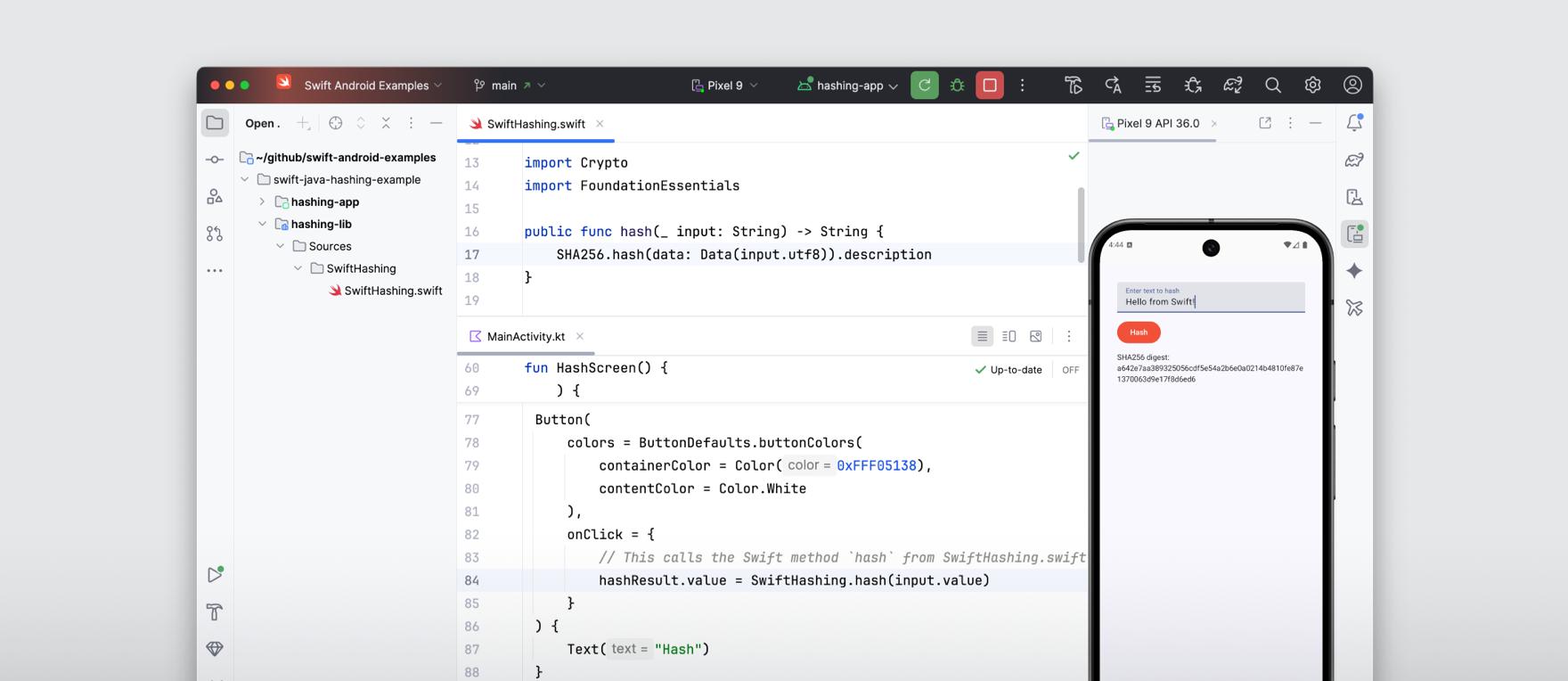Swift Android kini resmi memasuki dunia pengembangan aplikasi Android melalui rilis perdana nightly build SDK yang diumumkan oleh tim pengembang Swift. Keputusan ini menandai tonggak sejarah penting bagi komunitas developer global yang selama ini mengenal Swift sebagai bahasa pemrograman eksklusif untuk ekosistem Apple.
Dengan hadirnya SDK tersebut, Swift kini menjadi bahasa yang benar-benar lintas platform. Para pengembang dapat menulis logika bisnis yang sama, baik untuk iOS, macOS, maupun Android, tanpa perlu beralih ke Kotlin atau Java. Ini memperluas jangkauan Swift sebagai bahasa modern yang cepat, aman, dan mudah dibaca.
Transformasi Swift Menuju Bahasa Universal
Langkah Apple membuka dukungan Swift untuk Android menunjukkan ambisi besar untuk menjadikan bahasa ini lebih inklusif. Swift awalnya dirancang untuk menggantikan Objective-C dalam pengembangan aplikasi iOS, namun kini mulai bertransformasi menjadi alat lintas platform.
Dengan SDK terbaru, pengembang bisa membangun fondasi aplikasi Android menggunakan framework Swift yang sama seperti di Xcode. Hal ini memberi konsistensi kode, menghemat waktu pengembangan, dan mempermudah tim lintas platform bekerja dalam satu basis bahasa.
Ekosistem Swift Kini Lebih Terbuka
Salah satu perubahan paling signifikan adalah pendekatan komunitas yang lebih terbuka. Swift Foundation menyiapkan repositori resmi di GitHub untuk Android SDK ini, memungkinkan kontribusi langsung dari pengembang di seluruh dunia.
Selain itu, sistem nightly build yang digunakan menjamin pembaruan cepat untuk setiap eksperimen dan perbaikan bug. Pendekatan ini mirip dengan strategi yang digunakan dalam proyek sumber terbuka besar seperti Flutter dan React Native.
Meningkatkan Produktivitas Developer
Dengan Swift Android SDK, pengembang yang sudah mahir Swift tidak perlu mempelajari bahasa baru. Mereka bisa langsung memanfaatkan kemampuan bahasa seperti optionals, type inference, dan protocol-oriented programming untuk membuat aplikasi Android dengan performa tinggi.
Menurut dokumentasi resmi, SDK ini telah mendukung kompilasi kode Swift menjadi native binary yang berjalan langsung di perangkat Android. Dukungan ini juga memanfaatkan toolchain LLVM yang sama dengan yang digunakan pada sistem Apple, sehingga menjaga konsistensi performa lintas platform.
Implikasi Bagi Dunia Pengembangan Aplikasi
Rilis Swift Android bukan sekadar berita teknologi biasa, tetapi momentum penting yang dapat mengubah lanskap pengembangan aplikasi global. Banyak perusahaan teknologi kini mencari cara untuk mempercepat pembangunan produk di berbagai platform tanpa mengorbankan efisiensi.
Swift menawarkan solusi ini dengan pendekatan yang elegan dan efisien. Bahasa ini dikenal memiliki sintaks sederhana namun kuat, serta sistem keamanan memori yang tinggi. Dengan hadirnya SDK untuk Android, Swift kini bersaing langsung dengan Kotlin Multiplatform dan Flutter.
Peluang Baru bagi Startup dan Enterprise
Bagi startup, dukungan Android membuka peluang besar untuk mengembangkan aplikasi lintas platform dengan biaya lebih rendah. Mereka dapat menulis satu kode inti, lalu menyesuaikan antarmuka pengguna di masing-masing platform.
Sementara itu, bagi perusahaan besar, Swift menjadi jembatan strategis untuk menyatukan tim pengembangan iOS dan Android yang sebelumnya terpisah. Dengan kode dasar yang sama, pemeliharaan dan pembaruan aplikasi dapat dilakukan lebih cepat.
Tantangan Implementasi Awal
Meski menjanjikan, SDK ini masih dalam tahap preview release. Artinya, belum semua fitur Android terintegrasi penuh dengan Swift. Pengembang disarankan untuk menguji SDK di lingkungan pengembangan, bukan di produksi.
Beberapa komponen Android seperti integrasi UI toolkit dan manajemen dependensi masih dalam proses pengembangan. Namun, dokumentasi resmi di swift.org menunjukkan roadmap jelas menuju stabilitas penuh dalam waktu dekat.
Masa Depan Swift di Dunia Lintas Platform
Keputusan menghadirkan Swift Android SDK menegaskan arah baru Apple terhadap keterbukaan dan kolaborasi komunitas global. Sebagai bahasa yang lahir dari filosofi efisiensi dan keamanan, Swift kini memiliki peluang besar untuk menyaingi framework lintas platform lain seperti Flutter dan React Native.
Potensi Dominasi di Ekosistem Developer
Jika SDK ini mencapai versi stabil dalam waktu dekat, Swift berpotensi menjadi bahasa pemrograman utama untuk aplikasi lintas sistem operasi. Kelebihan utamanya adalah kemampuannya menulis logika tunggal tanpa mengorbankan performa native.
Komunitas Swift juga menunjukkan antusiasme tinggi terhadap rilis ini. Banyak pengembang mulai bereksperimen menghubungkan Swift dengan Android NDK dan membangun pustaka bersama yang kompatibel dengan berbagai sistem operasi.
Kolaborasi Global dan Inovasi Berkelanjutan
Dalam jangka panjang, Apple dan komunitas Swift berpotensi memperluas dukungan ke platform lain seperti Windows dan Linux secara lebih menyeluruh. Dengan cara ini, Swift bukan lagi sekadar bahasa untuk produk Apple, tetapi menjadi bahasa universal untuk aplikasi modern lintas perangkat.
Proses ini juga membuka ruang bagi kolaborasi terbuka antara komunitas iOS dan Android yang selama ini terpisah. Melalui proyek ini, Apple memperkuat posisi Swift sebagai bahasa masa depan yang siap menyatukan ekosistem pemrograman dunia.
Rilis Swift Android SDK menjadi simbol penting dalam sejarah evolusi bahasa pemrograman modern. Ia membuka jalan menuju dunia pengembangan lintas platform yang lebih efisien, inklusif, dan kolaboratif.
Bagi para pengembang dan perusahaan teknologi, langkah ini bukan sekadar kabar baik, tetapi sinyal kuat bahwa batas antara platform semakin kabur. Dunia pengembangan kini bergerak menuju satu tujuan: menulis sekali, menjalankan di mana saja.
Discover more from Insimen
Subscribe to get the latest posts sent to your email.





























